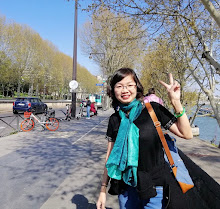Types of inquiry-based learning
Even though inquiry-based science education is based
on students' curiosity and their experimentation, teachers still play a crucial
role in delivering the inquiry-based science lesson. There are different levels
of instructions that teachers can provide to their students and these can be
classified as different types of inquiry-based learning. There are 3 types of inquiry that
are commonly used in inquiry-based instruction:
1. Structured inquiry
Learners are given the question and the method of achieving the result, but the
goal is to provide an explanation that is already supported by the evidence
gathered during and through the investigative process.
Structured Inquiry
The
structured inquiry process provides students with a question and a procedure to
follow, but allows them to discover the solution.
What does the teacher do?
1.
Gives
particular steps for students to follow
2.
Presents
materials and equipment for the activity
3.
Asks
investigating type questions from time to time to check if students understand
what they are doing
4.
Encourages
students to work in a group
5.
Monitors
room to ensure all students are participating
2. Guided inquiry
Learners are only given a question. The main goal is to design the method of
investigation and then test the question itself. This type of inquiry is not
typically as structured as the previously mentioned type.
Guided Inquiry
Guided inquiry presents students with a question or a
problem to solve. Using experimentation together with their prior knowledge, it
will be up to them to determine a procedure and arrive at a solution.
What does the teacher do?
1.
Provides
students with an inquiry-based question
2.
Presents
background 'story'
3.
A
teacher is there to guide students while they:
o write a statement about the inquiry question that is
testable
o choose one or more ways to test their hypothesis and
record their observations
o analyze and share their results
3. Open inquiry
Learners must form their questions, design investigative methods, and then
carry out the inquiry itself. They must present their results at the end of the
process.
Open Inquiry
In open inquiry students come up with a question they
want to research, students decide how they are going to research it and
finally, they share their results.
What does the teacher do?
1.
In
open inquiry, students propose a research question, teachers can guide students
by asking reflective questions
2.
A
teacher must adopt a new role - the facilitator of the learning process
3.
Scaffolding
the learning for the students - assisting the students in understanding
scientific phenomena without any intervention on their behalf.











0 comments: